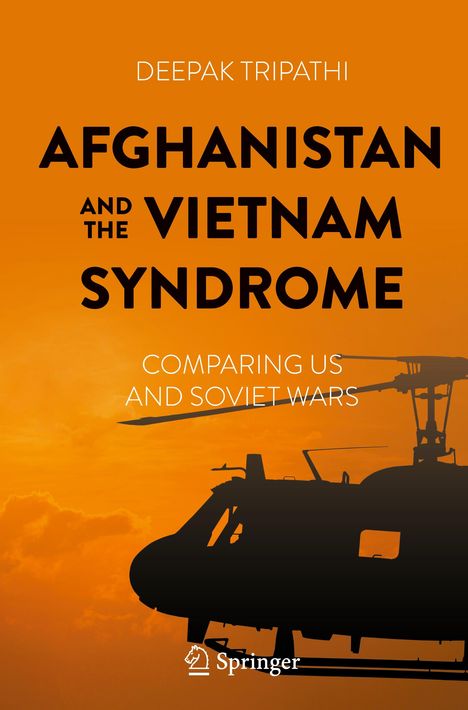Deepak Tripathi: Afghanistan and the Vietnam Syndrome
Afghanistan and the Vietnam Syndrome
Buch
- Comparing US and Soviet Wars
- Springer Nature Switzerland, 03/2024
- Einband: Kartoniert / Broschiert, Paperback
- Sprache: Englisch
- ISBN-13: 9783031235573
- Artikelnummer: 11788381
- Umfang: 200 Seiten
- Nummer der Auflage: 2023
- Auflage: 2023
- Gewicht: 312 g
- Maße: 235 x 155 mm
- Stärke: 12 mm
- Erscheinungstermin: 2.3.2024
Achtung: Artikel ist nicht in deutscher Sprache!
Weitere Ausgaben von Afghanistan and the Vietnam Syndrome
Klappentext
Great powers have often found that military adventurism to force their will in distant lands comes with the risk of spending excessive military, economic, and moral capital to the extent that war is no longer sustainable. Written by a former BBC Afghanistan correspondent who set up the corporation s bureau in Kabul in the early 1990s, this book draws both from scholarly knowledge as well as first-hand insights on how the Americans met that fate in Vietnam, and the Soviets and Americans in Afghanistan. Americäs 1975 retreat from Vietnam was a consequential event, prompting US commentators to explain it as reluctance to get involved in foreign wars, a mindset described as the Vietnam Syndrome.As Deepak Tripathi points out, the Vietnam experience made the Americans determined to give the Soviets their own Vietnam. The 1979 Soviet invasion of Afghanistan, and retreat after a decade of occupation, represented the revenge America sought. However, President George W. Bush s decision to invade Afghanistan after the 9 / 11 attacks was the beginning of a long military venture that ended in retreat in 2021. Addressing an academic as well as a general audience, Tripathi explores parallels between wars in Afghanistan and Vietnam, and shows how the United States and the Soviet Union met the same fate.



